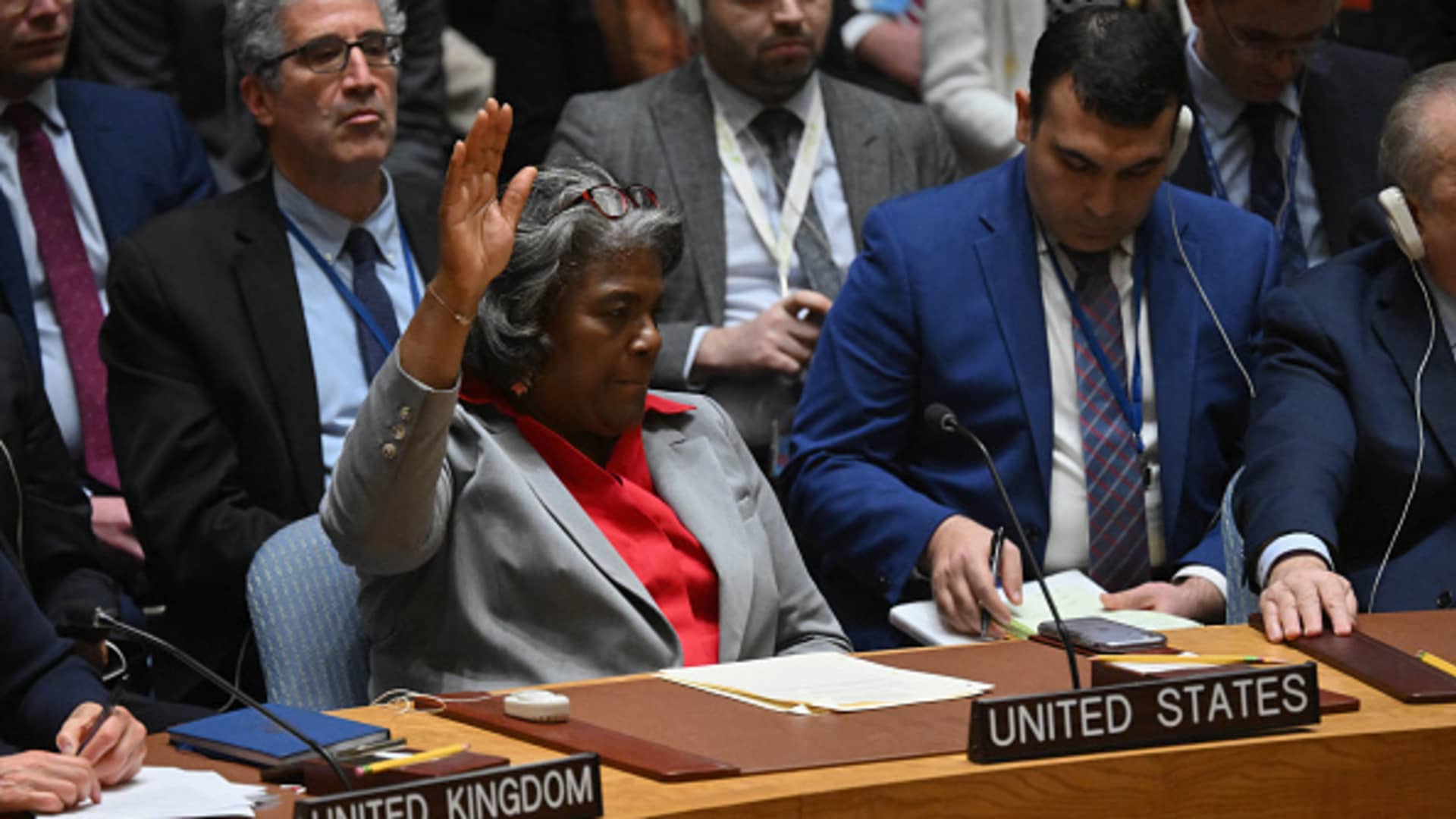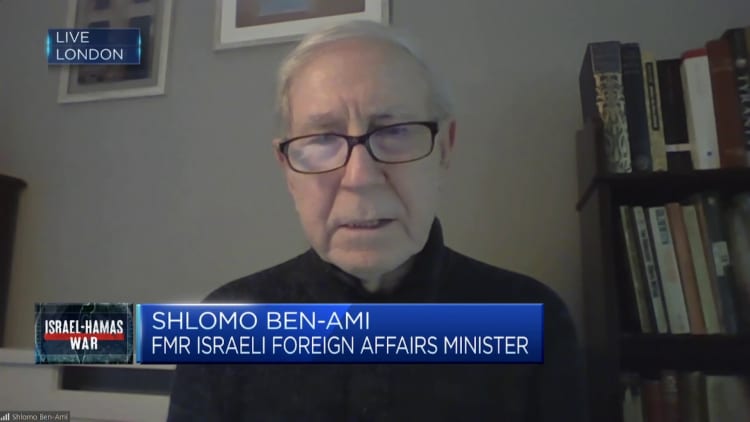
US Ambassador to the United Nations Linda Thomas-Greenfield votes abstain during a vote on a resolution calling for an immediate ceasefire in Gaza during a United Nations Security Council meeting on the situation in the Middle East, including the Palestinian question, at the UN headquarters in New York on March 25, 2024.
Angela Weiss | Afp | Getty Images
The United Nations Security Council on Monday adopted a resolution demanding an immediate ceasefire between Israel and Palestinian militant group Hamas, after the United States abstained from the vote — prompting Israel to cancel the visit of a high-level delegation to Washington.
Israeli Prime Minister Benjamin Netanyahu had warned prior to the vote that the delegation’s visit would be pulled, if Washington did not veto the motion. The U.S. abstention signals a widening divide between the White House and Israel’s current government, the most right-wing in its history, nearly six months into its war against Hamas in the Gaza Strip. Israel’s offensive into the Gaza enclave, which comes in response to the Oct. 7 Hamas terror attacks, has killed tens of thousands of people.
“This is a clear retreat from the consistent position of the U.S. in the Security Council since the beginning of this war,” a statement from Netanyahu’s office said, adding that “this withdrawal hurts both the war effort and the effort to release the abductees.”
The U.S. denied that the abstention marked a shift in its policy. Some observers see it differently.
“It’s a breakthrough. An abstention from a UN Security Council permanent member is a yes vote, because it means they are not exercising their veto and basically agree with the text, even if they don’t want to say so,” Hussein Ibish, a senior resident scholar at the Arab Gulf States Institute in Washington, told CNBC.
“The U.S. declining to protect Israel from a resolution it passionately objects to by not providing a veto is an extraordinary thing.”

The first of its kind passed since the onset of the war, the resolution called for an immediate cessation of hostilities between Israel and Palestinian militant group Hamas for two weeks, breaking a five-month impasse during which the U.S. vetoed three U.N. calls for a halt in fighting. The motion also called for the immediate and unconditional release of all hostages held by Hamas in the Gaza Strip.
State Department Spokesman Matthew Miller said Washington’s reasons to not approve the measure included its lack of condemnation for the Hamas terror attack, which led to roughly 1,200 deaths in Israel and took around 240 more people hostage.
But, Miller added, “the reason we didn’t veto it is because there were also things in that resolution that were consistent with our long term position, most importantly, that there should be a ceasefire and that there should be a release of hostages, which is what we understood also to be the government of Israel’s position. So it is a bit surprising and unfortunate that they are not going to apparently attend these meetings.”
